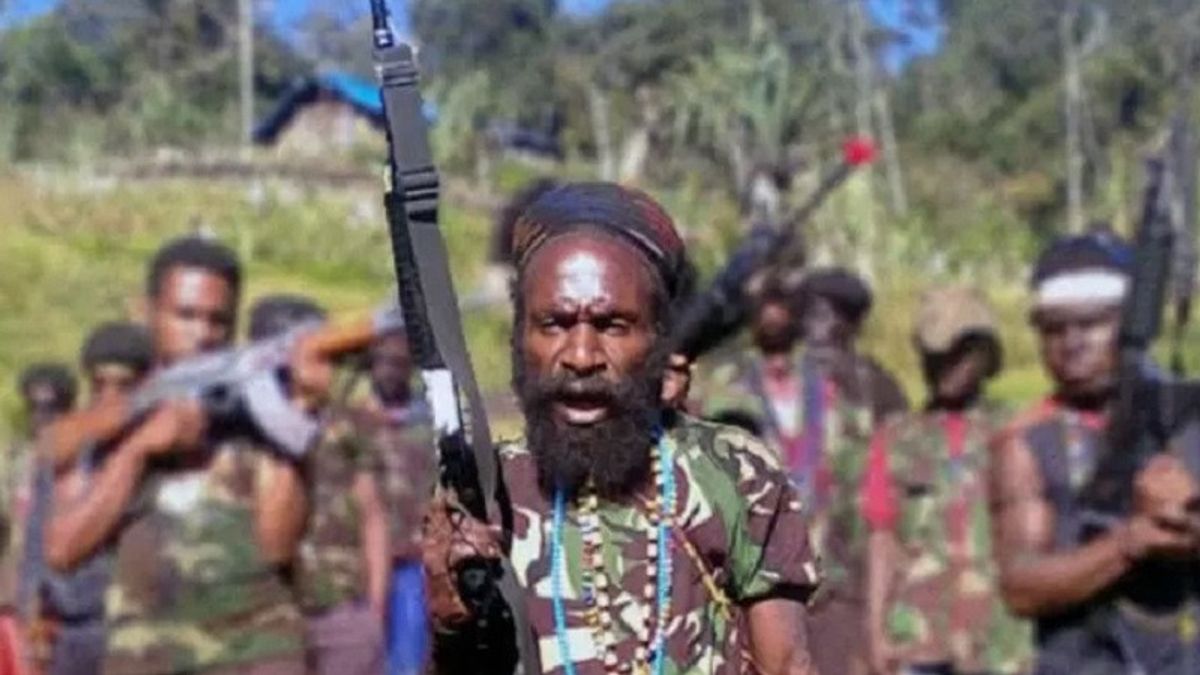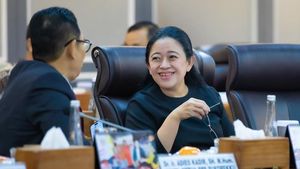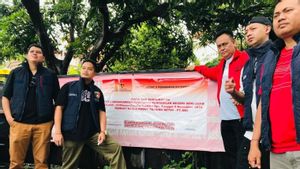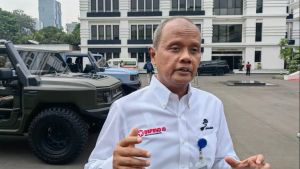JAKARTA - After the end of 2021, the news about Papua was filled with good news about the implementation of the XX PON, in early 2022 the easternmost province in Indonesia was again covered with sad news. Especially if it wasn't for the actions of a group of armed men who shot and killed TNI officers.
The last attack occurred in Bukit Tepuk, Jenggernok Village, Gome District, Puncak Regency on January 27, 2022. The target of their attack was the TNI guard post, which resulted in the death of three Indonesian soldiers and one injured. They are Serda M. Rizal Maulana Arifin, Private Tupel Alomoan Baraza, and Private Rahman Tomilawa. While the soldier who was injured was Pratu Syaiful.
The TNI commander, General Andhika Perkasa, had to come to Papua to pay his respects to the three soldiers who died. The Army Chief of Staff (KSAD), General Dudung Abdurachman led the funeral ceremony for Serda Rizal in Bandung, Pangdam II Sriwijaya, Maj. Gen. Agus Suhardi led the funeral for Pratu Baraza in Jambi, while the funeral for Pratu Tomilawa in Central Maluku was led by Pangdam XIV Pattimura Major General Richard Tampubolon.

"The leadership and all soldiers and the extended family of the Indonesian Army express their deep condolences for the death of three soldiers from the YR 408/Sbh Kodim Task Force," said the Head of the Information Service (Kadispenad) of the Indonesian Armed Forces, Brigadier General Tatang Subarna, as quoted by Antara, Thursday, January 27.
“A shootout between TNI AD soldiers and KKB occurred at around 04.30 WIT. The armed criminal group attacked the Gome Koramil Post so that three soldiers died and one soldier was in critical condition due to being shot, "said Tatang in the press release.
The Beginning of the Armed Movement in Papua
If traced back, the term given to armed groups in Papua was initially only OPM which referred to the Free Papua Organization. The goal of the movement that emerged in 1963 was clear: to liberate Papua from Indonesia, as they bear the name. The OPM was recorded for the first time carrying out an armed attack in Manokwari, which is now the capital of West Papua Province, on July 26, 1965.
In 2021 the National Counterterrorism Agency (BNPT) proposed that the OPM be categorized as a terror group. BNPT believes that eradicating OPM will increase the sense of security and the welfare of the Papuan people. The OPM denies that they are troubling the Papuan people. OPM claims that their every activity is aimed at defending the rights of Papuans.
"If the OPM is labeled a terrorist, I think the authorities will be more arbitrary. Civilians who have nothing to do with the OPM can be arbitrarily arrested under the pretext of terrorism," said Gustaf Kawer, chairman of the Papuan Human Rights Lawyers Association, as quoted by BBC Indonesia.

Recently, the names for armed groups in Papua have been multiplying. There are Armed Criminal Groups (KKB), KSB which can be interpreted as Armed Civilian Groups or Armed Separatist Groups, Papuan Terrorist Separatist Groups (KSTP), the National Liberation Army for West Papua (TNPPB), the Free Papua Movement National Defense Army (TPN-OPM), and I don't know what other names will appear.
During 2020-2021, these armed groups carried out at least 20 attacks, both against civilians and security forces. Starting from the attack on the Brimob headquarters in Nduga on January 11, 2020, the attack on pilots and passengers of the airline Susi Air at the Puncak Regency Airport on March 13, 2021, to the attack on the Puskesmas that killed health workers in Kiwirok, Gunung Bintang Regency on September 17, 2021.
The Government's Hard Choices
Even though it clearly carries the mission of liberating Papua, it is not easy for the Indonesian government to classify these armed groups as rebels. If they are referred to as rebels or treason movements, then it is an opportunity to bring this issue to the international community by referring to Additional Protocol II of 1977 to the Geneva Conventions.
The Geneva Conventions are international law on how to deal with war, also known as international humanitarian law. Additional Protocol II 1977 of the Geneva Conventions addresses the issue of armed conflict within a country that does not involve foreign elements.

Article 3 of Additional Protocol II states that foreign parties are prohibited from intervening in the internal conflicts of a country. However, parties labeled as rebels can bring the problems they face to the international community, if they consider there is a violation of the Geneva Conventions.
Indonesia has not yet approved Additional Protocol II, but has ratified the Geneva Conventions. Therefore, the designation of armed groups in Papua as rebels carries the risk of the international community interfering in the TNI-Polri conflict with these groups.
Until now, the Papua conflict has not been resolved. Physical development, the festivities of sporting events, the plan to grant special autonomy, to regional expansion are not enough to reduce the conflicts that occur. Who knows, when complete peace will come to the island that is proud of as the Little Heaven that Falls to Earth.
The English, Chinese, Japanese, Arabic, and French versions are automatically generated by the AI. So there may still be inaccuracies in translating, please always see Indonesian as our main language. (system supported by DigitalSiber.id)








